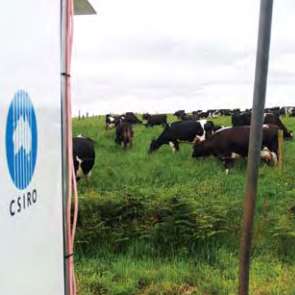The CSIRO will embark on a major “pivot” to reinvent itself for the digital age, announcing cuts of up to 350 staff over two years in order to employ “new people with new skills to help navigate this new future”.
In an all-staff letter obtained by Information Age, CEO Larry Marshall flagged reductions across a range of internal business units.
Climate scientists are expected to feel the brunt of the reductions but the CSIRO has said it also plans to remove people from its manufacturing and Data61 operations.
It is unclear how many of the jobs lost from Data61 are the result of overlap between the two organisations following the merger of NICTA - now Data61 - into the CSIRO.
Overlap was initially expected to claim up to 200 positions. Marshall said in his all-staff letter he was “pleased to note that the impact on the numbers of staff [from integrating Data61 into CSIRO] will be significantly lower than was anticipated”.
However, the impending job losses at Data61 come less than a week after Data61 chief Adrian Turner outlined how the agency would “turn Australia’s R&D fortunes around”, and months after Data61 was at least partially re-funded.
In addition, the cuts to Data61 were announced in the same all-staff letter that saw Marshall talk up the CSIRO’s investment in big data and its need to build out big data capabilities across its scientific portfolios.
Information Age asked the CSIRO why cuts were being made in an area it was trying to increase its capability, but a spokesperson for the organisation did not respond.
Marshall used the 2000-word all-staff note to challenge CSIRO to adopt a start-up mindset, to “pivot” based on disruptive influences it faced, and to “not be paralysed by our past”.
While he acknowledged that modelling produced by CSIRO scientists was pioneering, he warned the organisation “cannot rest on our laurels as that is the path to mediocrity”.
“Our climate models are among the best in the world and our measurements honed those models to prove global climate change,” Marshall said.
“That question has been answered, and the new question is what do we do about it, and how can we find solutions for the climate we will be living with?
“We believe there is a path where climate and industry can be partners, now we must walk that path to prove our science.”
In addition to embracing a real-world test and commercialisation mindset, Marshall said the organisation had “to cut to grow”.
“The cuts enable investment in the new direction,” he said.
He “projected” a zero net effect of headcount reductions – in other words, that losses would be countered by hires in growth areas.
Marshall said the all-staff letter was “personally a tough message for me to share as I joined CSIRO with a growth objective and one which I don’t resile from".
“However I also know that we need to evolve our capability to meet global market changes in order to deliver on our mission for Australia.”
Reaction to news of the cuts, particularly in the area of climate science, was swift and scathing. Climate scientists in particular panned any suggestion that the science questions have “been answered”.
“CSIRO is Australia's premier research organisation in terms of fundamental climate science, and has built a well-deserved international reputation for world-class science that has contributed much to global understanding of climate change,” ANU Emeritus Professor Will Steffen said.
“It takes decades of hard work by dedicated scientists to build up such a reputation. It can be destroyed overnight by senseless actions by those in power.
“Very regrettably, this seems to be happening."










